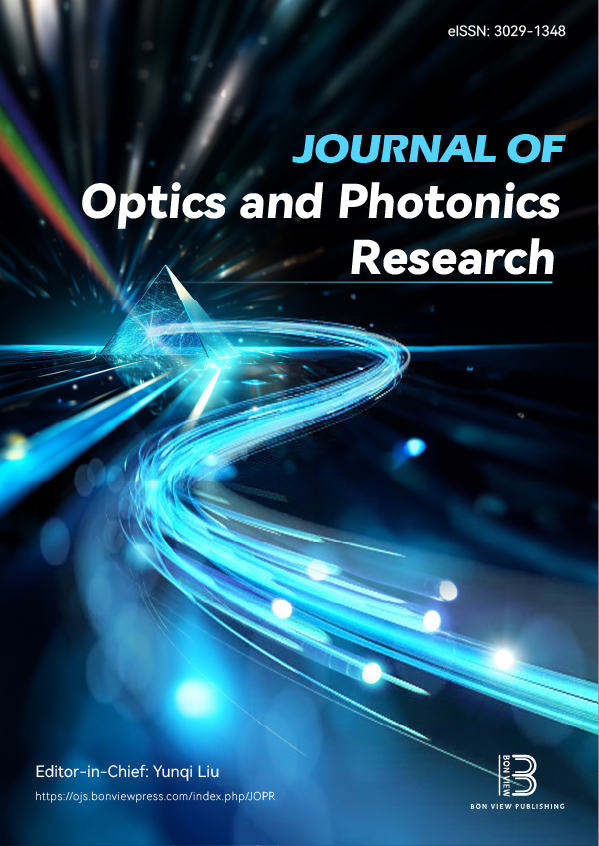Photocatalytic Properties Under Ultraviolet Light Irradiation of NiO–ZnO Nanocomposites Prepared by Sol–Gel Method
DOI:
https://doi.org/10.47852/bonviewJOPR52023823Keywords:
photocatalytic, sol–gel, nanocomposite, semiconductors, XRD, BET (Brunauer–Emmett–Teller)Abstract
The NiO–ZnO metal oxide nanocomposites were prepared by the sol–gel method and possess a high degree of purity, as indicated by the X-ray diffraction patterns. The morphology and elemental results were studied using scanning electron microscopy and energy-dispersive X-ray spectrometer, respectively. The degradation of dyes, specifically crystal violet (CV), through photocatalysis has been investigated under ultraviolet light using NiO–ZnO mixed metal oxide nanocomposites with p-n type heterojunctions. The energy band gap of pure NiO–ZnO composites was calculated using the Tauc plot of absorption spectra, and it is found to be 2.95 eV. The optimal properties for all photocatalysts were a pH of 9, an irradiation time of 175 min, a catalyst amount of 100 mg, and a dye concentration of 10 mg/L. Under these optimum conditions, the prepared photocatalysts degraded the CV dye by 98.22% for NiO–ZnO. The p-n semiconductors type (NiO–ZnO) nanocomposites having the highest activity for CV degradation could be attributed to charge transfer processes inhibiting electron-hole pair recombination. As a result, semiconducting composite-based nanocatalysts with high photocatalytic activity, such as NiO–ZnO, show promise for future industrial applications in removing undesirable organic pollutants from the environment.
Received: 11 July 2024 | Revised: 18 November 2024 | Accepted: 17 July 2025
Conflicts of Interest
The authors declare that they have no conflicts of interest to this work.
Data Availability Statement
Data sharing is not applicable to this article as no new data were created or analyzed in this study.
Author Contribution Statement
B. S. Satavekar: Conceptualization, Methodology, Software, Validation, Formal analysis, Investigation, Resources, Data curation, Writing – original draft, Writing – review & editing, Visualization. S. V. Anekar: Writing – review & editing, Project administration. B. S. Shirke: Conceptualization, Methodology, Software, Validation, Formal analysis, Investigation, Resources, Data curation, Writing – original draft, Writing – review & editing, Supervision, Project administration.
Downloads
Published
Issue
Section
License
Copyright (c) 2025 Authors

This work is licensed under a Creative Commons Attribution 4.0 International License.


